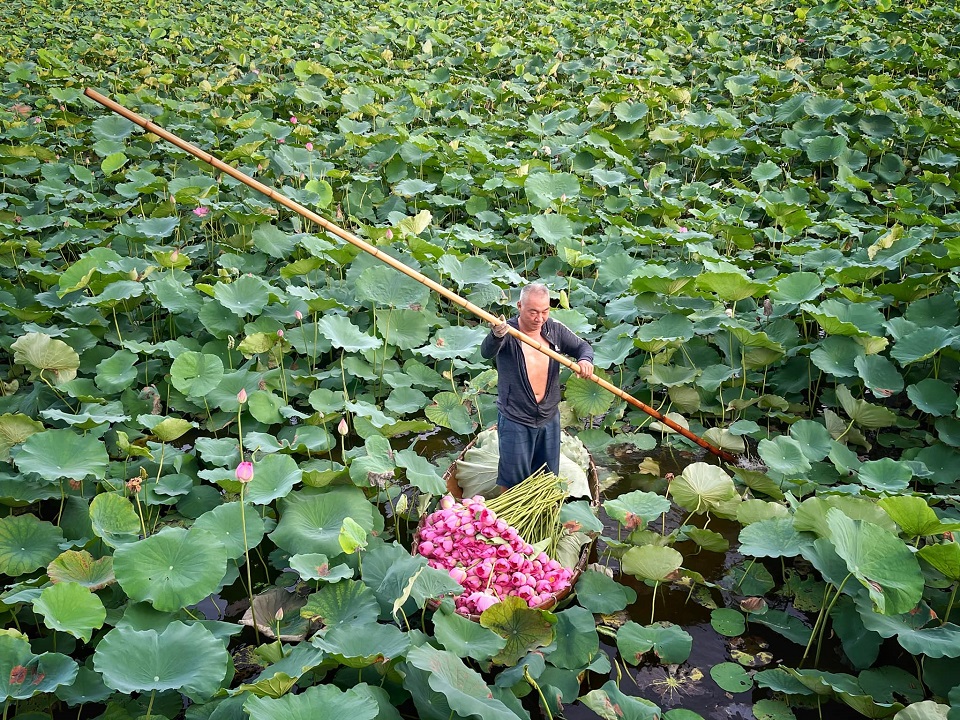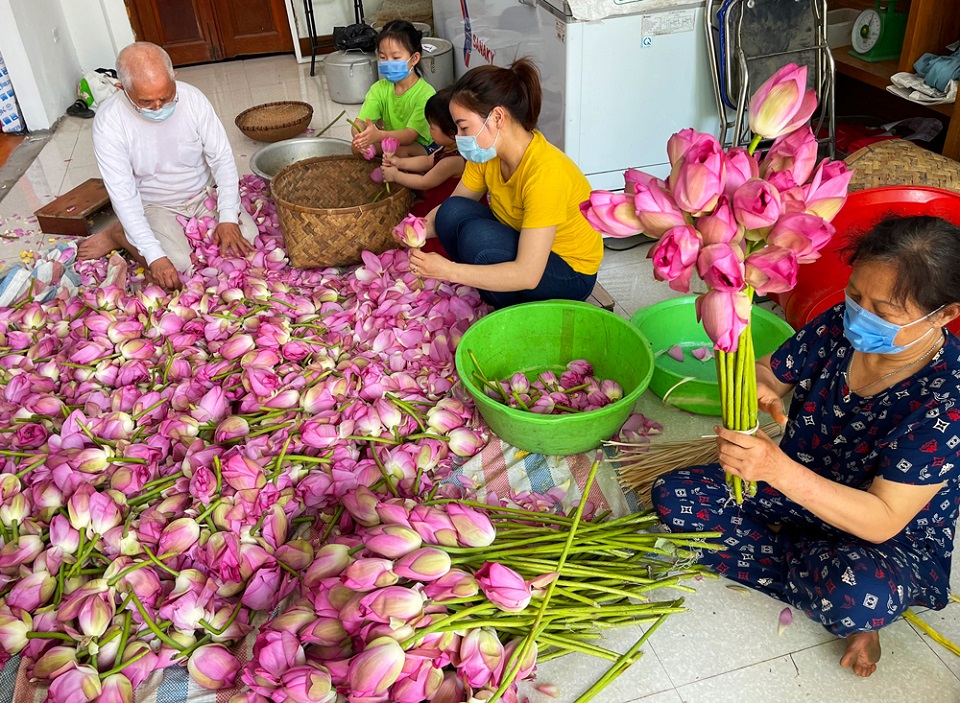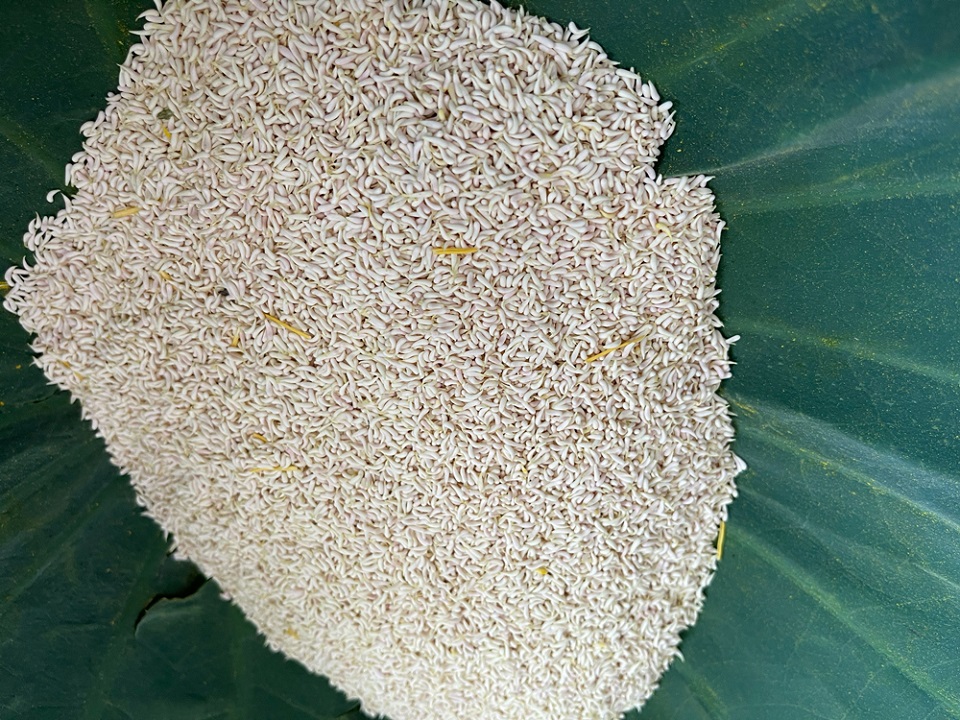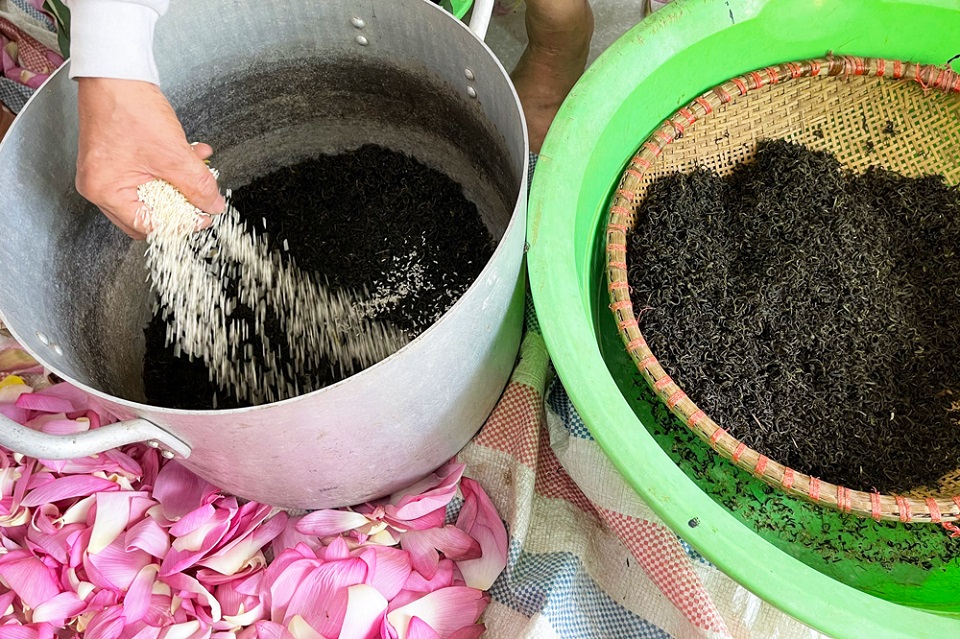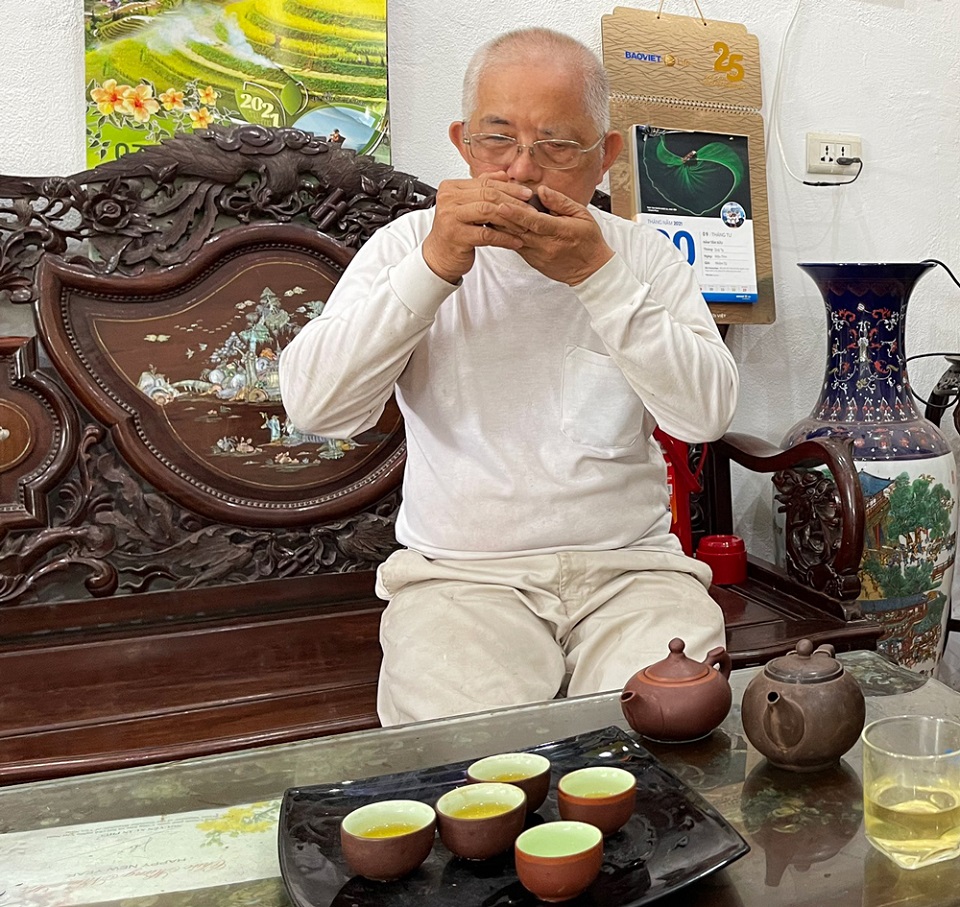Old man preserves West Lake lotus tea making
Ngo Van Xiem is one of a few artisans well-known for traditional lotus tea making in Quang An Village, Tay Ho District, Hanoi.
Generations of the Xiem family have been involved in the lotus tea trade, making some of the best teas, as well as a unique gift from Hanoi.
A life dedicated to lotus
| The Lotus harvesting season in the West Lake is usually started in May and ends in July. Photo: Viet Nguyen |
Early every morning in summer, Xiem brings back home lotus flowers which he picks from the West Lake in Tay Ho District. Then his family and workers gather to peel off the petals to get the lotus anther as fast as possible.
The origin of lotus tea making in Hanoi is still unknown. Xiem has been scenting tea with lotus since he was a kid. His son belongs to the fifth generation doing the job. In the past, the elders only made lotus tea for their own enjoyment and to offer to guests and friends. Today, as lotus tea is favored as a typical gift of Hanoi, the demand for lotus tea increases so the family trade thrives.
| Xiem and his descendants gather to peel off petals to get the lotus anther for lotus tea making. Photo: Thoi Nguyen |
Xiem rents some 10,000 square meters of the lake to grow lotus and supply his business. At the beginning of the lotus season in May, the work is easy for Xiem and his family members, as only about 1,000-2,000 flowers bloom. But in June and July, there are days when up to 10,000 flowers, he has to hire people to pick the flowers.
“If you want to make good lotus tea, you must master not only the technique but also know the lotus. Lotus only gives the best fragrance when it starts to bloom. As the sun rises, the flower fragrance dissipates,” Xiem said. Therefore, from 4am, the artisan has to get up to pick lotus flowers. The petal peeling also needs to be finished before mid-day to preserve the fragrance of the flowers.
| The white lotus anther, an indispensable ingredient of lotus tea. Photo: Thoi Nguyen |
The process of flavoring lotus tea is also very meticulous, which is only done by Xiem at the moment. About 1,500 lotus flowers are needed to scent some three kilograms of tea. The lotus anthers are mixed and dried with good-quality tea from Thai Nguyen, a well-known green tea growing region.
The process is repeated three times. Each time, it requires three days for each phrase, and the dried lotus anthers are taken out and the tea leaves are mixed again with fresh ones. In total, it takes about three weeks for the dried tea leaves to acquire the lotus scent. During this time, the artisans have endured the summer heat and avoid cooling themselves up with fans and air-conditioners as they could blow the fragrance away.
| The process of flavoring lotus tea is also very meticulous, which is only done by Xiem. Photo: Thoi Nguyen |
The lotus tea of Xiem's family is known for its quality and taste. It was served at the United States-North Korea Summit in Hanoi in 2019. After the event, Xiem was awarded a commendation certificate by Hanoi’s government.
A special gift connecting people
Due to the meticulous making process, the price of lotus tea is much higher than common tea, about VND 7million (US$305) a kilogram.
Making lotus tea is an art and so is the way of enjoying it. Earthen teapots and small cups are usually used to keep the aroma of the tea.
A drinker should not drink lotus tea in a hurry because he/she will not feel its full essence. Before taking the tea, he/she must bring it close to his/her nose to sniff the scent of lotus mixed with tea. Then he/she should take small sips, keep them in the mouth and swallow it slowly. Having a cup of lotus tea with family, friends, or even a passerby who wants to have a good conversation brings people closer and enjoy the best taste of tea.
| Making lotus tea is an art and so is the way of enjoying it. Xiem is testing the lotus tea that made by himself. Photo: Thoi Nguyen |
Lotus tea is a specialty of Hanoi imbued with the culture and exquisiteness of Hanoians, becoming a nice gift of the capital.
In the outbreak of the Covid-19 pandemic, Xiem’s lotus tea is still ordered by phone or online from both domestic and international customers. Lotus blooms in West Lake only once a year, but the fragrance of West Lake lotus tea through the skillful hands of Xiem has spread everywhere, connecting people with Hanoi.

